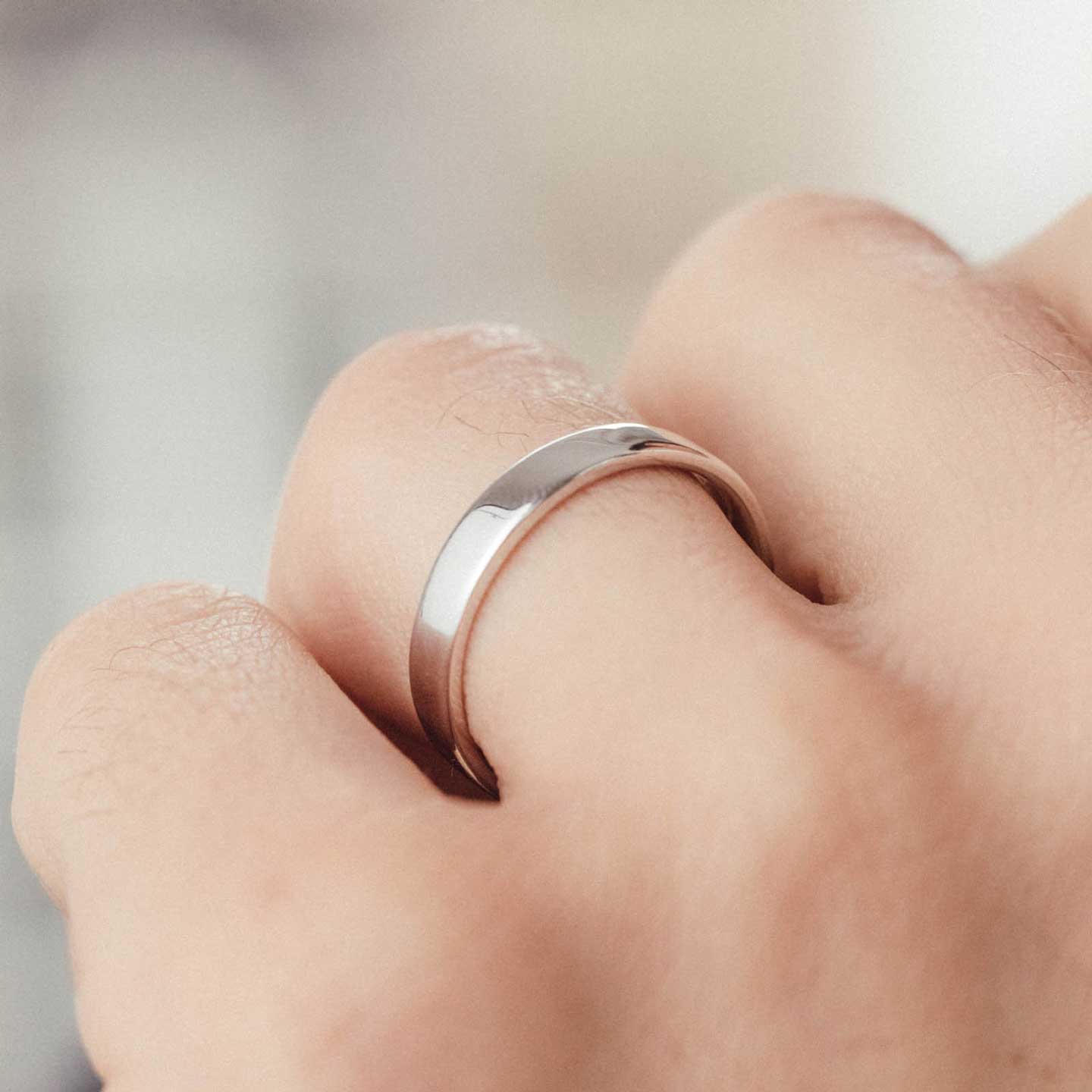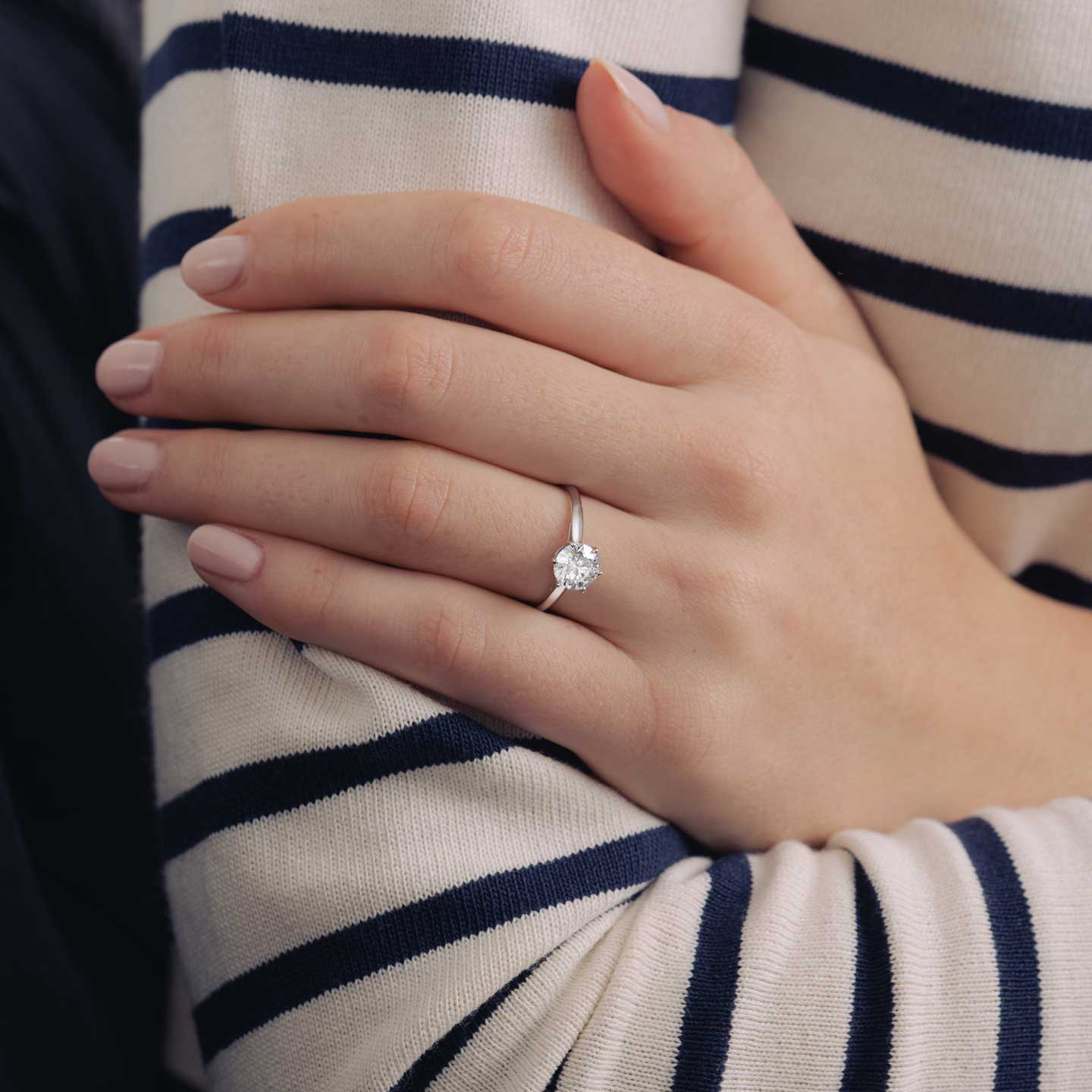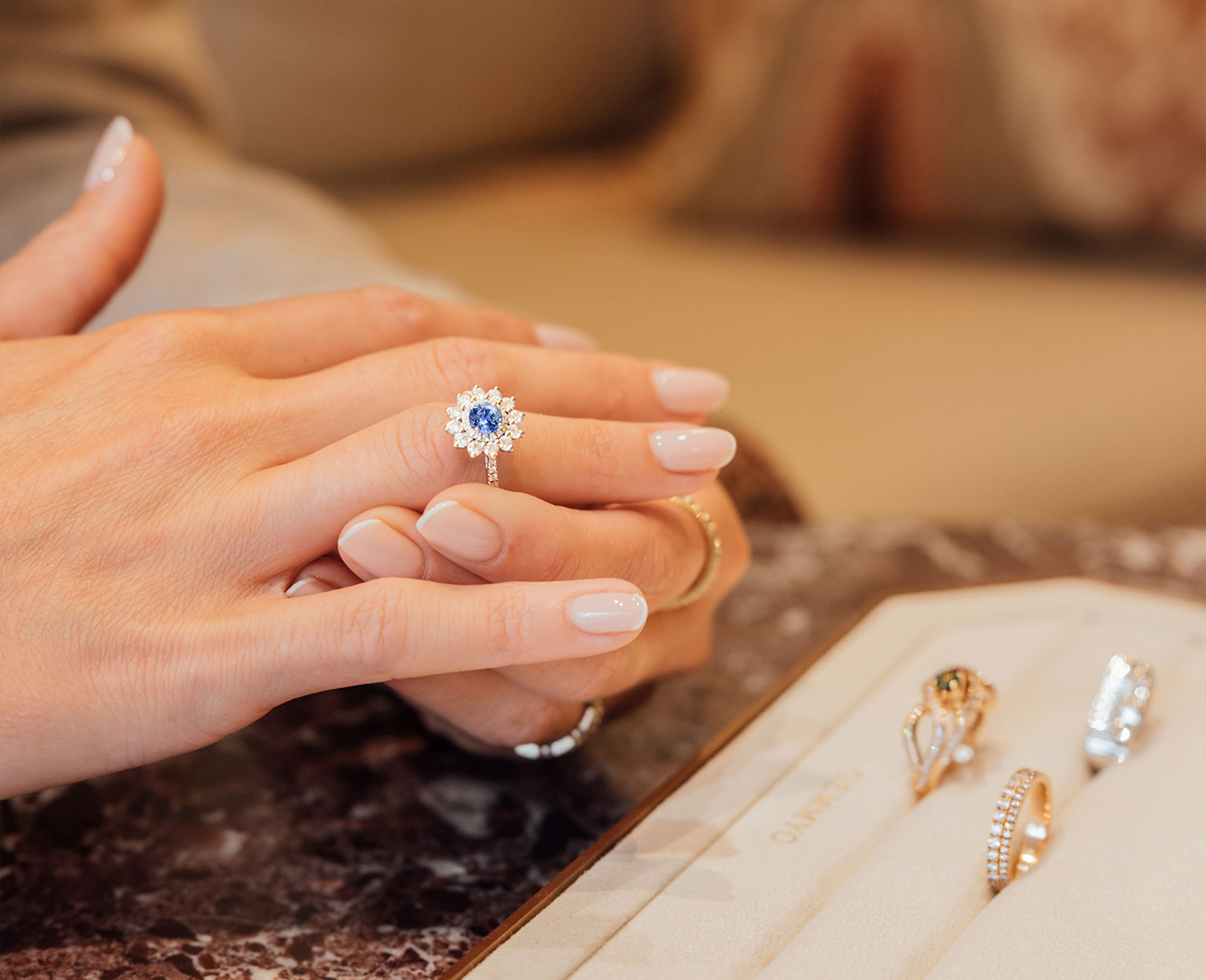You are probably wondering if white gold is a suitable metal for your jewelry? It's a legitimate question and we'll help you answer it!
To answer this question, we will first talk in more detail about the main characteristics of this metal, then we will discuss some tips and finally we will see the advantages and disadvantages of white gold.
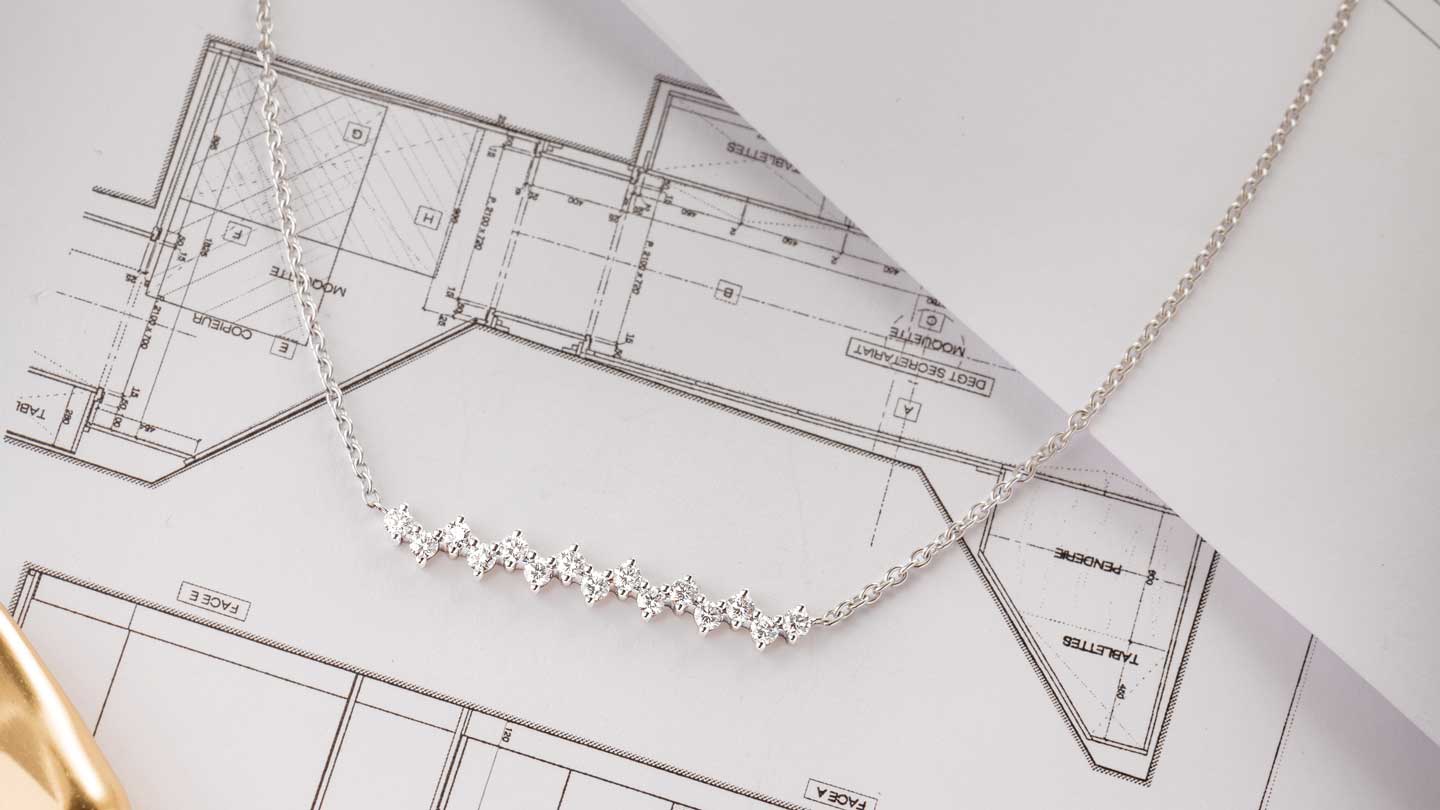
The basics
Before we get into the heart of the matter, let's look at some basic facts about gold.
What is white gold?
Simply put, white gold is rhodium-plated gold, i.e. it is coated with a thin layer of metal (rhodium) to give it its white colour. Here are some explanations:
From a base of 18K gold, we transform the originally yellow metal into a white gold base by adding silver (up to about 15%), copper and in some cases palladium.
The traditional process for giving white gold its colour is called rhodium plating.
Rhodium plating is the final step in the production of white gold jewelry. This crucial process consists of depositing a thin layer of a then liquid metal called rhodium on the previously polished alloy in a special bath.
Before this coating, white gold has a slightly greyish, very metallic, rough and matt colour. It is this rhodium plating process that will make white gold shine!
To help you determine whether white gold is suitable for your jewelry, we will now talk in more detail about its main characteristics, then we will discuss some tips and finally we will see its advantages and disadvantages!
The main characteristics of white gold
Very often, when we imagine a silver-coloured jewel, we instinctively think of white gold. Rightly so, since it is one of the most widespread precious metals in the world of jewelry... and this for several reasons:
—— 1. 18K white gold, one of the reference metals in jewelry
White gold is a metal that is perfectly suited to jewelry worn on a daily basis.
-
Firstly, it is a very resistant metal. The composition of 18K gold is a perfect balance to make it a very solid, very hard metal and therefore the most able to withstand the wear and tear of everyday life, especially for a ring.
-
Gold is a metal that is extremely resistant to corrosion. It will therefore be very durable over time. This is why it has been used since the beginning of time for precious objects that must last for centuries.
For all these reasons, we particularly recommend 75 % white gold for a ring that will be worn on a daily basis such as a wedding band or an engagement ring.
Beyond its resistance and hardness, white gold is a reference metal because of its colour.
—— 2. White gold, a timeless colour
White gold is a neutral metal that will stand the test of time and withstand varying fashions and trends!
An important point
Like all metals that are said to be rhodium-plated, white gold is a metal that develops a patina. With time, rubbing and knocks to the surface, the rhodium layer applied to white gold will fade.
Don't worry, it's not serious; it's even quite normal!
What does this patina look like on white gold?
The thin layer of rhodium deposited on the white gold will fade, leaving the metal underneath visible.
To help you visualise: your metal will become less shiny, more matt and may reveal a slightly yellowish grey colour.
This patina will often first occur on the part of your jewelry that is on the side of your palm, opposite your centre stone.
Why is that?
It is the place that will most often be subject to rubbing, firstly by your hand, but also by what you touch in your daily life such as bags, the steering wheel of your car, the handlebars of a bicycle, a cup, etc.
This is inevitable and does not mean that your metal is not gold or that it is of poor quality! Just like your best pair of suede shoes, the more you wear them, the more they will show signs of wear and tear!
In the same way, once you wear a piece of jewelry, it is impossible to keep a precious metal in perfect condition, as it was when it left the workshop.
In order to delay this patina as much as possible, or even to give your jewelry a new lease of life: find all all our maintenance tips.
Perfectly suited if you want a white metal for your jewelry, is it fair to compare white gold to platinum?
—— 3. Which metal should I choose between white gold and platinum?
White gold and platinum may look similar, but they are two distinct metals with unique properties.
Like white gold, platinum is also a metal particularly recommended for everyday jewelry. That's why it's easy to compare them and why they are often confused.
As with all metals, platinum has its advantages and disadvantages. Here are a few things to guide you along the way:
-
950/1000 platinum is a very pure metal with 95% purity in the alloy, making it the purest and most prestigious metal used in jewelry
-
950/1000 platinum is a very rare metal, much rarer than gold and therefore more expensive.
-
It slightly more malleable than 75% gold, so it will be more prone to scratching.
To put it simply: both white gold and platinum are perfect for jewelry such as a wedding band or an engagement ring, you won't make a bad choice between the two!
It's up to you to choose the pros and cons that suit you best!
To help you decide, find all our information on platinum.
—— 4. White gold is a metal that goes with all gemstones
White gold is a neutral, white metal, so you can’t go wrong.
This metal ensures that your stones will stand out as much as possible: whether it is for light stones such as aquamarine but also for darker stones such as sapphire or ruby.
With white gold, your stone will be perfectly highlighted.
White gold is a reference for both women and men. It is also an ideal metal for people who are not necessarily used to wearing jewelry, as it remains discreet and goes with everything. You take no risks with white gold.
After 10 years of working with our customers, we have compiled a list to guide you in your choice of stone by selecting the most popular combinations.
Most popular gemstones with white gold
Aquamarine Sapphire Tanzanite Tourmaline Tsavorite Diamond Emerald RubyLeast popular gemstones
GarnetWhat should we remember about white gold?
—— Its advantages:
-
18K white gold is the most resistant metal used in jewelry.
-
It is stainless and therefore very durable over time.
-
It can be combined with gemstones of all colours.
-
It is ideal for all types of jewelry and particularly recommended for those worn on a daily basis such as a wedding band or an engagement ring.
—— Its disadvantages:
-
White gold develops a patina over time and therefore needs to be maintained with a re-rhodium plating to regain its initial colour.
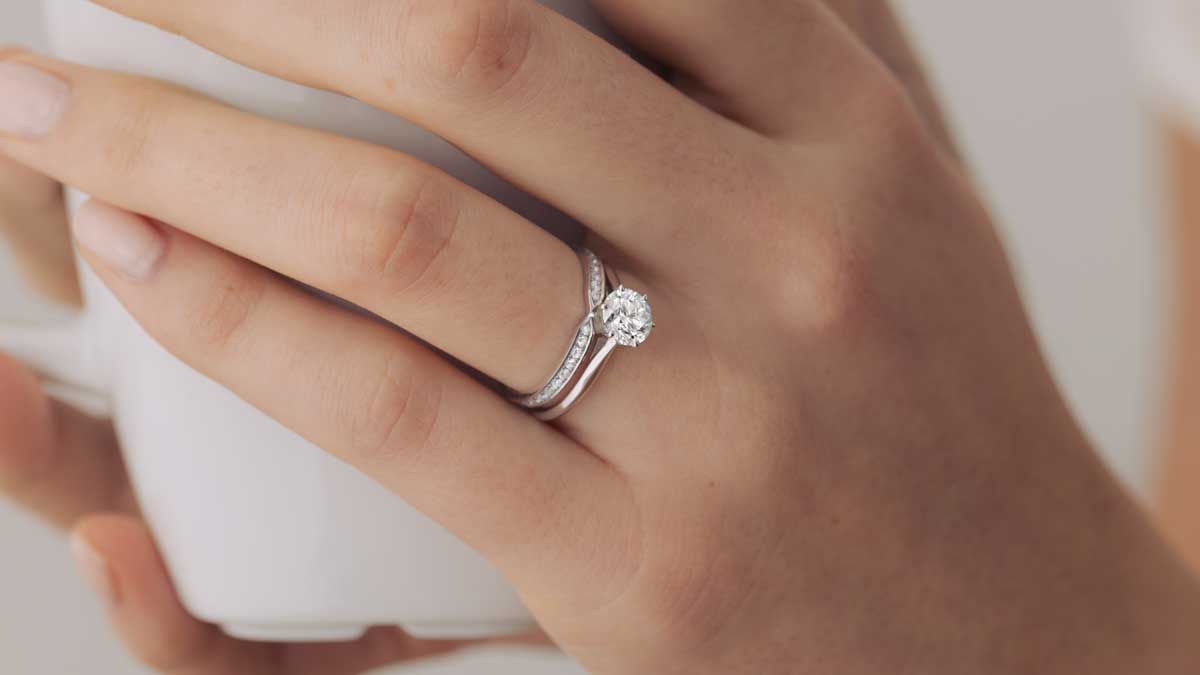
To conclude
18K white gold is the best quality of white gold you will find in jewelry.
It is a metal that is said to be standardised, so it is strictly identical between all the Maisons that use this quality!
White gold is a neutral and timeless metal that we recommend for all types of jewelry. Whether for earrings, pendants, bracelets or even rings, worn occasionally or every day.
Finally, it is important to remember that gold is an extremely durable metal. So, if you think or want to pass on your jewelry, for example your engagement ring as is often the case, 18K white gold is your best ally. It is a safe bet!
















